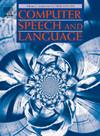Mono- and cross-lingual evaluation of representation language models on less-resourced languages
IF 3.4
3区 计算机科学
Q2 COMPUTER SCIENCE, ARTIFICIAL INTELLIGENCE
引用次数: 0
Abstract
The current dominance of large language models in natural language processing is based on their contextual awareness. For text classification, text representation models, such as ELMo, BERT, and BERT derivatives, are typically fine-tuned for a specific problem. Most existing work focuses on English; in contrast, we present a large-scale multilingual empirical comparison of several monolingual and multilingual ELMo and BERT models using 14 classification tasks in nine languages. The results show, that the choice of best model largely depends on the task and language used, especially in a cross-lingual setting. In monolingual settings, monolingual BERT models tend to perform the best among BERT models. Among ELMo models, the ones trained on large corpora dominate. Cross-lingual knowledge transfer is feasible on most tasks already in a zero-shot setting without losing much performance.
在资源较少的语言上对表示语言模型的单语言和跨语言评价
目前大型语言模型在自然语言处理中的主导地位是基于它们的上下文感知。对于文本分类,文本表示模型,如ELMo、BERT和BERT衍生物,通常针对特定问题进行微调。大多数现有的工作都集中在英语上;相比之下,我们使用9种语言的14个分类任务,对几种单语言和多语言ELMo和BERT模型进行了大规模的多语言经验比较。结果表明,最佳模型的选择在很大程度上取决于任务和使用的语言,特别是在跨语言环境中。在单语环境下,单语BERT模型往往在BERT模型中表现最好。在ELMo模型中,在大型语料库上训练的模型占主导地位。跨语言知识迁移在大多数任务中都是可行的,并且不会损失太多性能。
本文章由计算机程序翻译,如有差异,请以英文原文为准。
求助全文
约1分钟内获得全文
求助全文
来源期刊

Computer Speech and Language
工程技术-计算机:人工智能
CiteScore
11.30
自引率
4.70%
发文量
80
审稿时长
22.9 weeks
期刊介绍:
Computer Speech & Language publishes reports of original research related to the recognition, understanding, production, coding and mining of speech and language.
The speech and language sciences have a long history, but it is only relatively recently that large-scale implementation of and experimentation with complex models of speech and language processing has become feasible. Such research is often carried out somewhat separately by practitioners of artificial intelligence, computer science, electronic engineering, information retrieval, linguistics, phonetics, or psychology.
 求助内容:
求助内容: 应助结果提醒方式:
应助结果提醒方式:


